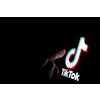Wednesday, December 4 | 11:20 a.m.-11:30 a.m. | SSK01-06 | Room E451B
In this session, researchers will share how age and race strongly influence breast cancer screening recall rates, but screening frequency and modality have greater impact.Presenter Dr. Emily Conant of the University of Pennsylvania in Philadelphia will share results from a study that assessed the effects of age, race, and screening frequency on recall rates using data from nearly 575,200 screening exams from approximately 257,600 women performed between 2015 and 2017 at 58 facilities across the U.S.
Women were categorized into the following groups:
- Those who had two or more screening mammography exams that were at least nine months apart
- Those who had only one screening exam (no prior exam in the year prior to this baseline)
Conant and colleagues found that recall rates were significantly higher among women who had undergone only one screening exam compared with those who had undergone two or more, both overall and within each age and race category.
"Initiatives to encourage compliance with annual screening mammography in women ages 40 and older, particularly with DBT, may help health systems optimize breast cancer screening programs while minimizing harms," the team concluded.




















